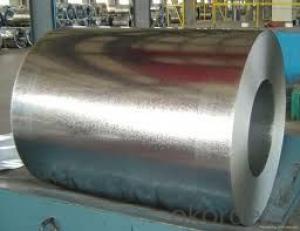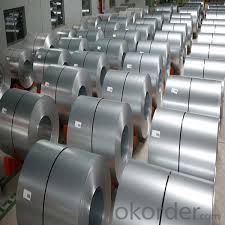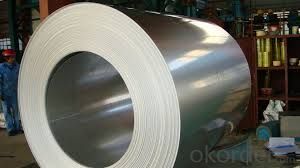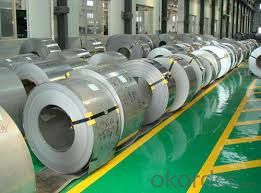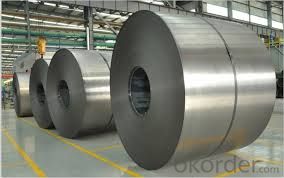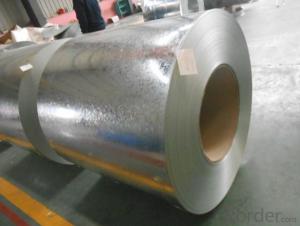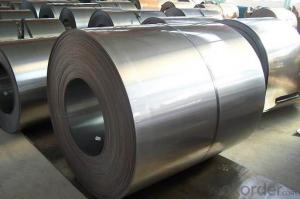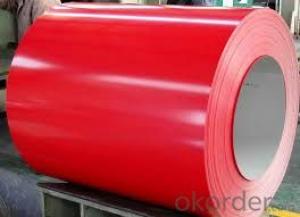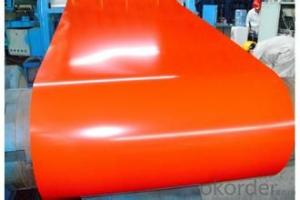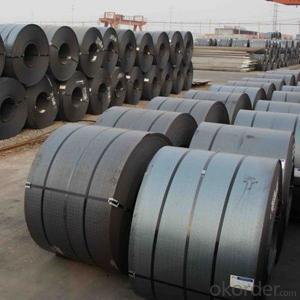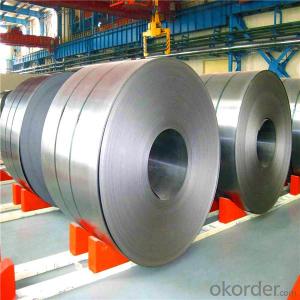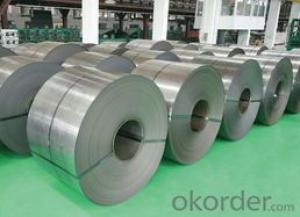Cold rolled Steel coil / sheet / plateSPCE
- Loading Port:
- Tianjin
- Payment Terms:
- TT OR LC
- Min Order Qty:
- 100 m.t.
- Supply Capability:
- 5000000 m.t./month
OKorder Service Pledge
OKorder Financial Service
You Might Also Like
Description:
The raw material of cold rolled steel coil/sheet is high quality hot rolled product, and after pickling, kinds of new technology and new process of global cold rolling production have been applied. Therefore the manufacturing, home appliance, automobile etc.
Specification:
COLD ROLLED STEEL | |
Thicknenss | 0.10mm-4.00mm |
Width | 600mm-2000mm |
Sheets length | 1200-6000mm |
Coil inner diameter | 508-610mm |
Surface treatement | matt finish/bright finish,oiling/dry, bright anneal/black anneal |
Coil weight | 3-5t |
Application:
1. Refrigerators, cabinets, power distribution baords and drums.
2. Automobile floor and roof panels.
3. Automobile fenders and quarter panels
4. Automobile fenders and quarter panels
Images:
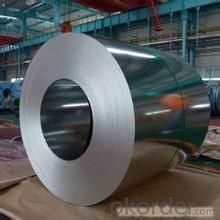
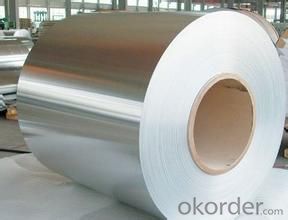
Our products enjoy an excellent reputation and have been exported to Europe, South-America, the Middle-East, Southeast-Asia, Africa and Russia etc.. We sincerely hope to establish good and long-term business relationship with your esteemed company.
FAQ
1. Do you have QC team?
Yeah, sure, our QC team is very important, they will keep the quality control for our products.for quality inspection every day.
- Q: Where do I need hot galvanized steel coils and color coated rolls?
- Hot galvanized steel coils and color coated rolls have light, beautiful and good corrosion resistance, and can be directly machinedThe construction industry, shipbuilding, vehicle manufacturing, furniture and electrical industries provide a new type of raw materialThe utility model has the advantages of steel replacing wood, efficient construction, energy saving, pollution prevention and the like.
- Q: What are the common coil weights available for steel coils?
- The available coil weights for steel coils vary depending on the specific application and industry requirements. However, the market offers a few standard coil weights. 1. Light coils: Industries such as automotive, construction, and appliance manufacturing prefer light coils weighing between 3 to 6 metric tons (6,000 to 13,000 pounds). These smaller and more manageable coil sizes are commonly used. 2. Medium coils: Industries like construction, infrastructure, and general manufacturing utilize medium coils weighing between 6 to 15 metric tons (13,000 to 33,000 pounds). 3. Heavy coils: Heavy industries such as shipbuilding, heavy machinery manufacturing, and infrastructure projects require heavy coils weighing over 15 metric tons (33,000 pounds), with some reaching 30 metric tons (66,000 pounds) or more. These coils provide the necessary strength for large steel components. It's important to understand that these weight ranges are flexible and subject to customer or industry specifications. Some manufacturers may even offer customized coil weights to meet specific project requirements. To determine the most suitable coil weight for a particular application, it is advised to consult with a steel supplier or manufacturer.
- Q: I work with stainless steel a lot and I know it's rust resistant but it's definitly not STAIN resistant. You might be able to remove some stains easier from it than you can from some other surfaces but when it does stain, its hard as heck to clean it. It takes forever to scrub stains off my stainless steel pans so maybe it should just be called rustless steel?
- This okorder /
- Q: hey i was looking to buy a khukuri machete by cas iberia. its made of carbon steel but doesnt say which one. anyone that is into knives and all that know how this would hold up and the rust resistance of it? mostly be used for cutting bush and small trees
- There's no way to tell from the information you posted. Given it's for a machete I would guess it would be a fairly high carbon steel. Rust resistance will be relatively poor. It will last for years though as long as you clean and dry it after use.
- Q: i want to know if i should buy a set of acrylic tapers or steel. they r close in cost so it's not a money factor i want to know which work better and if there is a downside to either. thanks!
- Steel is better. Acrylic is porous so isn't as suitable for piercing jewellery as steel. Steel can also slide through easier for some people, acrylic isn't quite as smooth. For tapers it doesn't make a huge deal of difference as they're only passing through your ear briefly, not being worn as jewellery, but if they're close in cost anyway then go for the steel. And the plugs you insert after putting the taper through should always be steel, titanium or glass until your stretch has healed.
- Q: How are steel coils used in the manufacturing industry?
- Steel coils are used in the manufacturing industry for a variety of purposes, including the production of various steel products such as automotive parts, construction materials, household appliances, and machinery components. These coils are often processed and formed into desired shapes through techniques like cutting, bending, and welding to create finished products that are durable, strong, and suitable for various applications in different sectors.
- Q: like, what can steel make?
- buildings bridges automobiles elevators railroads and railroad equipment appliances and many many more. Steel is used almost everywhere. reference: Iron and steel are used widely in the construction of roads, railways, infrastructure, and buildings. Most large modern structures, such as stadiums and skyscrapers, bridges, and airports, are supported by a steel skeleton. Even those with a concrete structure will employ steel for reinforcing. In addition to widespread use in major appliances and cars (Despite growth in usage of aluminium, it is still the main material for car bodies.), steel is used in a variety of other construction-related applications, such as bolts, nails, and screws.[66] Other common applications include shipbuilding, pipeline transport, mining, offshore construction, pipeline transport, aerospace, white goods (e.g. washing machines), heavy equipment (e.g. bulldozers), office furniture, steel wool, tools, and armour in the form of personal vests or vehicle armour (better known as rolled homogeneous armour in this role). .
- Q: i want a good modern carbon steel (not stainless) knife. trying to keep it under 50$ also nothing to gruesome just a small pocket knife. thank you
- Well, okorder /... They did make other folders in M2 steel, but the thing is those are out of production and the cost is very high. Spyderco made M4 steel folder knives, and so did Benchmade. Although,both are outside of 50$ budget. I guess Opinels are best option.
- Q: Im looking at some knives and am wandering if they use good steel one is this case knife and its 54 dollars Do they use good steel or not Iv never had a good experience with Case but am wandering if they use good steel now? if you all have any other recommendations let me hear them I got my Selection from here so any others wont hurt. so basic break down does case use good steel know?
- Case knives are top quality in workmanship. Many have collectors vlaue. I once found an antique four-bladed Case knife is a school yard that had a bone handle. There are basically three types of knives purchased by those who purchase them for practical uses: Pocket knives, made principally for whittling and gneral light use Lock bladed knives Sheath knives I'm not including such novleties as switchblades or throwing knives The latter two types of knives are designed more for outdoor use. Typically they are more duarble and have high quality steel that enables the knife to hold an edge for a longer period of time than a knife made of softer steel. Pocket knives, by contrast, have smaller, thinner blades. Moreover, their steel tends to be a little softer. Comparable brands to Case would include Boker, Old- Timer and Uncle Henry (both Schrade-Walden tradenames), Camillus and others. Overall, I think you would be pleased with a Case knife. Their quality certainly exceeds such brands as Imperial or Queen.
- Q: How are steel coils used in the manufacturing of bridges?
- Steel coils are used in the manufacturing of bridges as they provide the raw material for creating structural components such as beams, girders, and columns. These coils are processed and shaped into the required sections, which are then assembled and welded together to form the bridge's framework. The strength and durability of steel make it an ideal material for constructing bridges that can withstand heavy loads and harsh environmental conditions.
Send your message to us
Cold rolled Steel coil / sheet / plateSPCE
- Loading Port:
- Tianjin
- Payment Terms:
- TT OR LC
- Min Order Qty:
- 100 m.t.
- Supply Capability:
- 5000000 m.t./month
OKorder Service Pledge
OKorder Financial Service
Similar products
Hot products
Hot Searches
Related keywords
